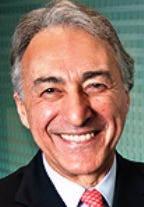President Jimmy Carter appointed Federal Reserve Bank of New York President Paul Volcker to chair the Federal Reserve Bank in July 1979 to address the immediate problem of hyperinflation. He was confirmed by the Senate in August and served as president until 1987.
The unadorned and independent-minded Volcker oversaw a financial austerity program that left a deep imprint on the US economy and financial system. Unlike elected officials, he understood that there are times when you have to incur short-term costs to obtain long-term benefits. Volcker is widely regarded as one of the best Fed chairmen in history.
Following:OPINION / COLUMN: Giglio: The return of the Taliban. What went wrong in Afghanistan?
When he took the reins of the central bank, the United States was plunged into a decade of rapidly rising prices and weak economic growth, known in the 1970s as “stagflationâ€. In the month Volcker took office, unemployment was 6% and inflation was 15%.
One advantage he appreciated was that the nation was much less in debt than in today’s environment. Unlike today, Volcker did not have to worry that a rise in interest rates to fight inflation could trigger a debt crisis. Conversely, if the current Fed maintains a lax monetary policy, it risks double-digit inflation.
Following:OPINION / COLUMN: Giglio: A look at how the ‘Nixon shock’ changed the global economy
In a moment that market watchers will never forget, Volcker chose to stick to his monetarist teaching by attempting to control interest rates by contracting the money supply rather than the federal funds rate. The Fed had historically targeted a short-term money market interest rate to loosen or tighten the money supply.
Then and now, the Fed set a short-term interest rate target, then bought and sold securities to ensure that rates actually settled at that level. Volcker concluded that the Fed needs to change its strategy and start targeting the actual amount of money floating around in the economy. As he said, “It is time to act — to send a compelling message to the markets and to the public”.
Following:OPINION / COLUMN: Giglio: When it comes to aging infrastructure, we can pay now or pay later
Volcker Shock affects the economy
So, just two months after taking office in August 1979, Volcker attacked inflation by using the powers of the Fed to directly target growth in the quantity of money. He would let interest rates set freely in the market.
It was shock therapy. By April 1980, interest rates had exceeded 17 percent and by the second quarter of 1980 gross domestic product had contracted by 7.9 percent. The extreme rise in interest rates has been called the Volcker shock.
The action triggered what was then the deepest economic downturn since the Great Depression and drove thousands of businesses and farms out of business. Unemployment peaked at 10.8%.
But by the mid-1980s, Volcker’s medicine was working. The reduced money supply and the high cost of credit ultimately defeated inflation and inflation expectations.
Following:“It’s crazy right now”: a national labor shortage is hitting South Shore businesses
Volcker’s unwavering commitment to shock therapy and his willingness to take unpopular political action has made him the target of opprobrium from politicians of all ideological stripes. He believed central bankers should run the economy without political considerations. In protest against his policies, home builders sent the Fed unused two-by-fours, car dealers mailed keys to cars for which there were no buyers, and farmers drove their tractors. around the white marble Fed building.
Following:Straight out of Gatsby – a $ 3.4 million sale to Milton. Tennis courts, wine cellar also.
But double-digit interest rates and the sharp double-dip recession that followed the credit crunch ultimately killed the inflation dragon. It plunged below 4 percent in 1983, and by 1986 it had fallen to around 2 percent.
Interest rates eventually followed. After the runaway inflation ended, he cut rates. It restored confidence in the dollar, the Coca Cola of money, and laid the foundation for a quarter century of low inflation, steady growth, and rare, mild recessions.
One can say of Volcker as Hamlet said of his father: “He was a man, take him for everything in short. I won’t look at him like him anymore.
Joseph M. Giglio is Professor of Strategic Management at Northeastern University D’Amore-McKim School of Business.

